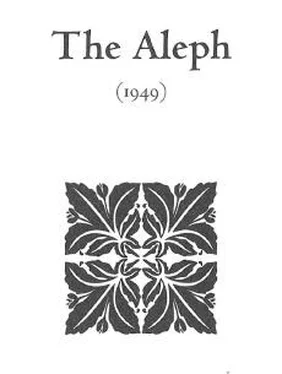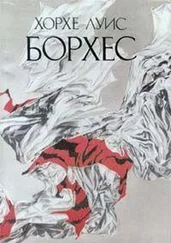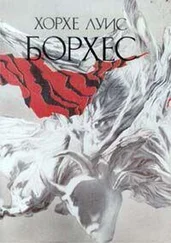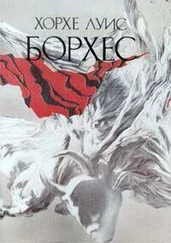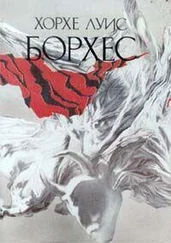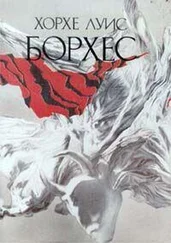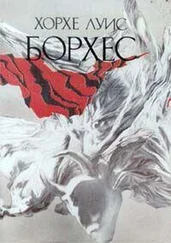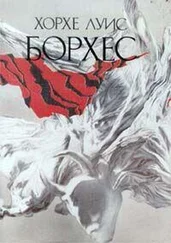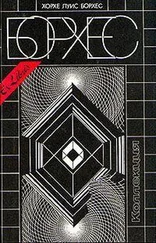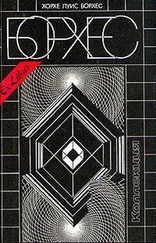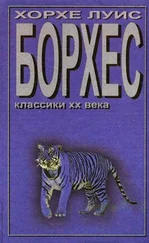Хорхе Борхес - Collected Fictions
Здесь есть возможность читать онлайн «Хорхе Борхес - Collected Fictions» весь текст электронной книги совершенно бесплатно (целиком полную версию без сокращений). В некоторых случаях можно слушать аудио, скачать через торрент в формате fb2 и присутствует краткое содержание. Год выпуска: 1999, ISBN: 1999, Издательство: Penguin (UK), Жанр: Старинная литература, на английском языке. Описание произведения, (предисловие) а так же отзывы посетителей доступны на портале библиотеки ЛибКат.
- Название:Collected Fictions
- Автор:
- Издательство:Penguin (UK)
- Жанр:
- Год:1999
- ISBN:9780140286809
- Рейтинг книги:5 / 5. Голосов: 1
-
Избранное:Добавить в избранное
- Отзывы:
-
Ваша оценка:
- 100
- 1
- 2
- 3
- 4
- 5
Collected Fictions: краткое содержание, описание и аннотация
Предлагаем к чтению аннотацию, описание, краткое содержание или предисловие (зависит от того, что написал сам автор книги «Collected Fictions»). Если вы не нашли необходимую информацию о книге — напишите в комментариях, мы постараемся отыскать её.
Collected Fictions — читать онлайн бесплатно полную книгу (весь текст) целиком
Ниже представлен текст книги, разбитый по страницам. Система сохранения места последней прочитанной страницы, позволяет с удобством читать онлайн бесплатно книгу «Collected Fictions», без необходимости каждый раз заново искать на чём Вы остановились. Поставьте закладку, и сможете в любой момент перейти на страницу, на которой закончили чтение.
Интервал:
Закладка:
At the honest little house, Funes' mother opened the door.
She told me that Ireneo was in the back room. I shouldn't be surprised if I found the room dark, she told me, since Ireneo often spent his off hours without lighting the candle. I walked across the tiled patio and down the little hallway farther on, and came to the second patio. There was a grapevine; the darkness seemed to me virtually total. Then suddenly I heard Ireneo's high, mocking voice. The voice was speaking Latin; with morbid pleasure, the voice emerging from the shadows was reciting a speech or a prayer or an incantation. The Roman syllables echoed in the patio of hard-packed earth; my trepidation made me think them incomprehensible, and endless; later, during the enormous conversation of that night, I learned they were the first paragraph of the twenty-fourth chapter of the seventh book of Pliny's Naturalis historia. The subject of that chapter is memory; the last words were ut nihil non iisdem verbis redderetur auditum.
Without the slightest change of voice, Ireneo told me to come in. He was lying on his cot, smoking. I don't think I saw his face until the sun came up the next morning; when I look back, I believe I recall the momentary glow of his cigarette. His room smelled vaguely musty. I sat down; I told him about my telegram and my father's illness.
I come now to the most difficult point in my story, a story whose only raison d'être (as my readers should be told from the outset) is that dialogue half a century ago. I will not attempt to reproduce the words of it, which are now forever irrecoverable. Instead, I will summarize, faithfully, the many things Ireneo told me. Indirect discourse is distant and weak; I know that I am sacrificing the effectiveness of my tale. I only ask that my readers try to hear in their imagination the broken and staccato periods that astounded me that night.
Ireneo began by enumerating, in both Latin and Spanish, the cases of prodigious memory cataloged in the Naturalis historia: Cyrus, the king of Persia, who could call all the soldiers in his armies by name; Mithridates Eupator, who meted out justice in the twenty-two languages of the kingdom over which he ruled; Simonides, the inventor of the art of memory; Metrodorus, who was able faithfully to repeat what he had heard, though it be but once. With obvious sincerity, Ireneo said he was amazed that such cases were thought to be amazing. He told me that before that rainy after-noon when the blue roan had bucked him off, he had been what every man was—blind, deaf, befuddled, and virtually devoid of memory. (I tried to remind him how precise his perception of time, his memory for proper names had been—he ignored me.) He had lived, he said, for nineteen years as though in a dream: he looked without seeing, heard without listening, forgot everything, or virtually everything. When he fell, he'd been knocked unconscious; when he came to again, the present was so rich, so clear, that it was almost unbearable, as were his oldest and even his most trivial memories. It was shortly afterward that he learned he was crippled; of that fact he hardly took notice. He reasoned (or felt) that immobility was a small price to pay. Now his perception and his memory were perfect.
With one quick look, you and I perceive three wineglasses on a table; Funes perceived every grape that had been pressed into the wine and all the stalks and tendrils of its vineyard. He knew the forms of the clouds in the southern sky on the morning of April 30,1882, and he could compare them in his memory with the veins in the marbled binding of a book he had seen only once, or with the feathers of spray lifted by an oar on the Rio Negro on the eve of the Battle of Quebracho. Nor were those memories simple—every visual image was linked to muscular sensations, thermal sensations, and so on. He was able to reconstruct every dream, every daydream he had ever had. Two or three times he had reconstructed an entire day; he had never once erred or faltered, but each reconstruction had itself taken an entire day. "I, myself, alone, have more memories than all mankind since the world began," he said to me. And also: "My dreams are like other people's waking hours." And again, toward dawn: "My memory, sir, is like a garbage heap." A circle drawn on a blackboard, a right triangle, a rhombus—all these are forms we can fully intuit; Ireneo could do the same with the stormy mane of a young colt, a small herd of cattle on a mountainside, a flickering fire and its uncountable ashes, and the many faces of a dead man at a wake. I have no idea how many stars he saw in the sky.
Those are the things he told me; neither then nor later have I ever doubted them. At that time there were no cinematographers, no phonographs; it nevertheless strikes me as implausible, even incredible, that no one ever performed an experiment with Funes. But then, all our lives we postpone everything that can be postponed; perhaps we all have the certainty, deep inside, that we are immortal and that sooner or later every man will do everything, know all there is to know.
The voice of Funes, from the darkness, went on talking.
He told me that in 1886 he had invented a numbering system original with himself, and that within a very few days he had passed the twenty-four thousand mark. He had not written it down, since anything he thought, even once, remained ineradicably with him. His original motivation, I think, was his irritation that the thirty-three Uruguayan patriots* should require two figures and three words rather than a single figure, a single word. He then applied this mad principle to the other numbers. Instead of seven thousand thirteen (7013), he would say, for instance,"Máximo Pérez"; instead of seven thousand fourteen (7014), "the railroad"; other numbers were "Luis Melián Lafinur," "Olimar," "sulfur," "clubs," "the whale," "gas," "a stewpot," "Napoleon,""Agustín de Vedia. "Instead of five hundred (500), he said "nine." Every word had a particular figure attached to it, a sort of marker; the later ones were extremely complicated.... I tried to explain to Funes that his rhapsody of unconnected words was exactly the opposite of a number system. I told him that when one said "365" one said "three hundreds, six tens, and five ones," a breakdown impossible with the "numbers" Nigger Timoteo or a ponchoful of meat. Funes either could not or would not understand me.
In the seventeenth century, Locke postulated (and condemned) an impossible language in which each individual thing—every stone, every bird, every branch—would have its own name; Funes once contemplated a similar language, but discarded the idea as too general, too ambiguous. The truth was, Funes remembered not only every leaf of every tree in every patch of forest, but every time he had perceived or imagined that leaf. He resolved to reduce every one of his past days to some seventy thousand recollections, which he would then define by numbers. Two considerations dissuaded him: the realization that the task was interminable, and the realization that it was pointless. He saw that by the time he died he would still not have finished classifying all the memories of his childhood.
The two projects I have mentioned (an infinite vocabulary for the natural series of numbers, and a pointless mental catalog of all the images of his memory) are foolish, even preposterous, but they reveal a certain halting grandeur. They allow us to glimpse, or to infer, the dizzying world that Funes lived in. Funes, we must not forget, was virtually incapable of general, platonic ideas. Not only was it difficult for him to see that the generic symbol "dog" took in all the dissimilar individuals of all shapes and sizes, it irritated him that the "dog" of three-fourteen in the afternoon, seen in profile, should be indicated by the same noun as the dog of three-fifteen, seen frontally. His own face in the mirror, his own hands, surprised him every time he saw them. Swift wrote that the emperor of Lilliput could perceive the movement of the minute hand of a clock; Funes could continually perceive the quiet advances of corruption, of tooth decay, of weariness. He saw—he noticed —the progress of death, of humidity. He was the solitary, lucid spectator of a multiform, momentaneous, and almost unbearably precise world. Babylon, London, and New York dazzle mankind's imagination with their fierce splendor; no one in the populous towers or urgent avenues of those cities has ever felt the heat and pressure of a reality as inexhaustible as that which battered Ireneo, day and night, in his poor South American hinterland. It was hard for him to sleep. To sleep is to take one's mind from the world; Funes, lying on his back on his cot, in the dimness of his room, could picture every crack in the wall, every molding of the precise houses that surrounded him. (I repeat that the most trivial of his memories was more detailed, more vivid than our own perception of a physical pleasure or a physical torment.) Off toward the east, in an area that had not yet been cut up into city blocks, there were new houses, unfamiliar to Ireneo. He pictured them to himself as black, compact, made of homogeneous shadow; he would turn his head in that direction to sleep. He would also imagine himself at the bottom of a river, rocked (and negated) by the current.
Читать дальшеИнтервал:
Закладка:
Похожие книги на «Collected Fictions»
Представляем Вашему вниманию похожие книги на «Collected Fictions» списком для выбора. Мы отобрали схожую по названию и смыслу литературу в надежде предоставить читателям больше вариантов отыскать новые, интересные, ещё непрочитанные произведения.
Обсуждение, отзывы о книге «Collected Fictions» и просто собственные мнения читателей. Оставьте ваши комментарии, напишите, что Вы думаете о произведении, его смысле или главных героях. Укажите что конкретно понравилось, а что нет, и почему Вы так считаете.
